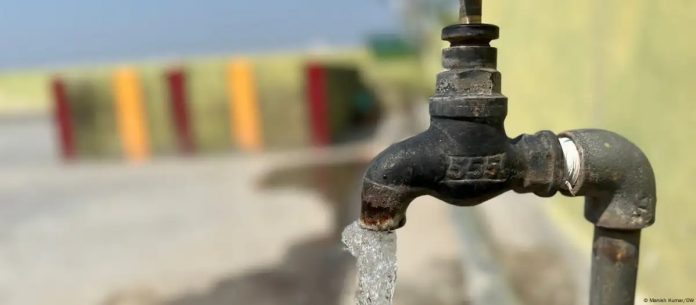Well over half the world’s population — 4.4 billion people — cannot access safely managed drinking water, a new study has shown.
4.4 billion people is more than double estimates made in by The World Health Organization (WHO) in 2022.
But the report only examined access to clean water in low and middle-income countries, meaning the figure would likely be greater once poor access in higher income countries is accounted for.
“The information which we have points towards very high rates of contamination,” said lead researcher Esther Greenwood from ETH Zurich, Switzerland.
The new figures come from more sophisticated methods to collect data about water contamination.
The risks of drinking contaminated water
Unsafe drinking water has a risk of causing a variety of severewater-borne diseases like cholera, dysentery, typhoid, and less severe diseases like norovirus.
To be considered “safely managed”, water must be available on demand, on premises and contaminant-free, and designed to deliver safe water.
The majority of those without access to such services are limited by likely fecal contamination,according to the research published in the journal Science.
Greenwood’s study was conducted to plug existing data gaps. Satellite observations and household survey information were analyzed using artificial intelligence to define areas of safe and unsafe water access.
As well as representing more than half the global population, the 4.4 billion people who don’t have access to safe drinking water accounts for two-thirds of those living in low and middle-income countries.
Greenwood says the findings are conservative as the data are samples taken on a single day rather than over extended timescales.
“It could actually be that the numbers are even higher,” she said.
South Asia and Sub-Saharan Africa most affected
The analysis considered human and environmental impacts that limited safe water access across the UN’s 22 geographic subregions.
It predicted 1.2bn people living across India, Afghanistan, Bangladesh, Bhutan, Iran, the Maldives, Nepal, Pakistan and Sri Lanka — more than half of the region’s population — were not using safe managed drinking water.
But South Asia fares better than others on a per capita basis.
More than 80% of people living in Sub-Saharan Africa — a region covering more than 1.1bn people — cannot access safe managed water.
So too, regions across Oceania (excluding Australia and New Zealand) and Southeast Asia, where around 75% are affected.
About half of these populations may be exposed to contaminated drinking water, according to the study.






